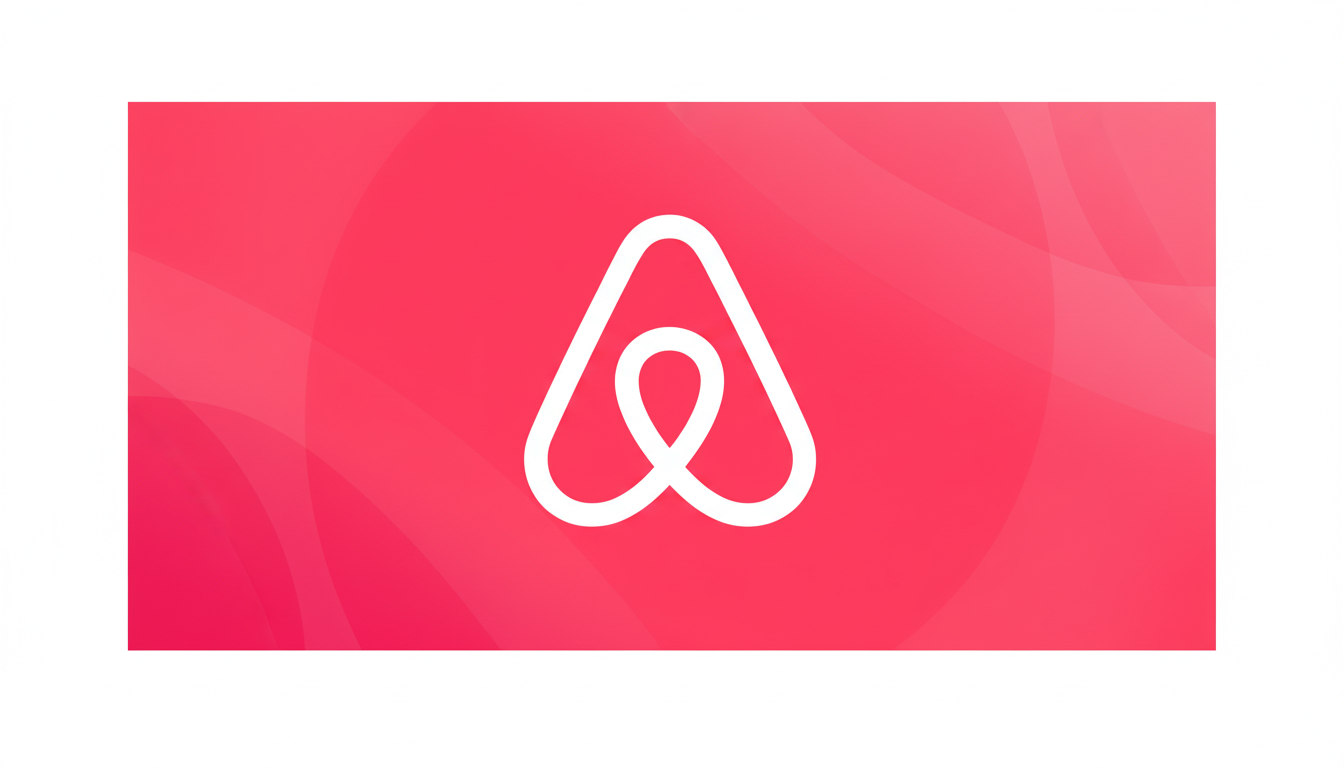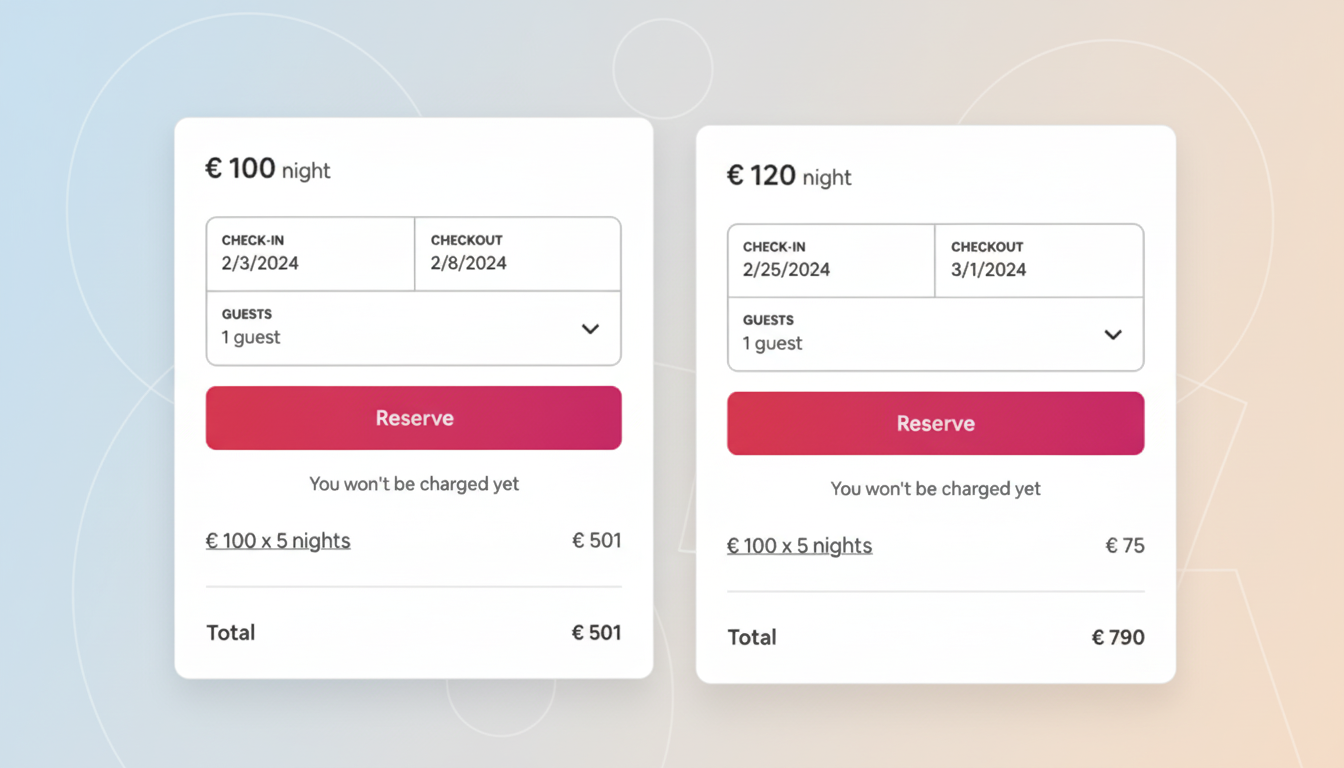Airbnb is overhauling how it charges guests for stays in an attempt to change its image from just being a cheap alternative to hotels.
The company introduced new guest service fees that many travellers will now see added at checkout — but those service fees will still be optional on some properties, and waived on others.

The change is intended to reduce sticker shock and add more transparency to your browsing experience, though the total you pay may not differ that much, at least for now.
What Changed on Airbnb and Whom the New Fees Affect
Historically, Airbnb has employed a “split-fee” structure: Guests paid a service fee typically between 14% and 16% at the time of booking, while hosts paid Airbnb about 3 percent of the nightly rate. Under the new setup, that guest service fee moves to the host side for listings managed by property management companies or using property management software.
Functionally, it’s likely that many professionally managed or software-connected listings will no longer display a separate service fee line for the guest. Instead, Airbnb will subtract the combined payment — which adds up to about 17 percent to 19 percent of the booking subtotal — from host payouts. Casual hosts, who don’t use management software across the board, are not universally impacted and could still function on the split-fee model for now.
What You’ll See at Checkout Under the New Pricing
Expect fewer “gotcha” fees. If the listing is based on the new model, then the service fee won’t appear in such a conspicuous line at the end. You’ll still see taxes and any cleaning fee, but the much-loathed service fee — which used to vary by market — isn’t added to your total at checkout; it’s already factored into the host’s pricing strategy.
The bottom line may look familiar. If you’re staying at a $100-per-night property where there was formerly a 15% guest service fee, you might have paid $115 before taxes and cleaning under the old split-fee arrangement, while the host would owe around $3 to Airbnb and take home $97. In the new system, Airbnb extracted about $18 from the host’s payout and there was no longer a visible service fee for guests. And depending on how much the host raises the per-night rate to make up for that $18, you may still end up in pretty much the same place total price-wise — except with a clearer sense of what you’re paying upfront.
Key caveat: taxes and local assessments (and, in some areas, tourism or resort fees) may still show up when you’re checking out. But we are getting more transparency: taxes in many jurisdictions are still nothing but a pass-through added at the very end.
Why Airbnb Is Making This Move on Service Fees
Airbnb has been under pressure from travelers and regulators to crack down on “drip pricing,” in which mandatory fees are not revealed until late in the booking process. The company has already implemented complete-price signs in many markets and added features to make it easier for consumers to see the final price. Transferring service fees to the host side goes further by following how hotels and some competitors charge: what you see upfront ends up being closer to what you pay.

Regulators have been circling the subject. The US Federal Trade Commission has led efforts for a more sweeping clampdown on so-called junk fees, while the UK’s Competition and Markets Authority and the European Commission have called for all-in pricing displays. Airbnb’s shift brings it in line with the industry standard of platforms charging suppliers a commission and guests seeing fewer surprise add-ons.
The timing is the product of competitive dynamics as well. Most of the large online travel agencies charge host-side commissions in the mid to high-teens, and professional hosts understandably like to be able to smooth that platform fee over time as if it were a predictable monthly line item. For Airbnb, enabling fees to be bundled in with base pay can reduce checkout abandonment but not necessarily kill revenue.
How Hosts May Respond to Shifted Service Fees
Hosts now have a choice: either eat the cost to remain price competitive, or raise their nightly rates to preserve margins. On tight markets or in off-season months, more hosts can also be expected to bite the bullet and keep list prices flat. In higher-demand destinations, some will probably nudge rates up to recoup much if not all of the fee.
Skilled operators are capable of dynamic pricing; some will experiment with the highest they can push rates before it causes conversion to plummet. As for guests, that means nightly prices could inch up for some listings even if the booking experience now feels simpler.
What This Means for Your Next Trip as a Guest
Look for clearer comparisons at the search stage, particularly on software-tied listings, and not so many last-minute price jumps. You might see a higher nightly price on some stays as hosts include fees — but you’ll have less bewilderment when you click through to checkout.
What makes the move by Airbnb notable is its scale. The company reported over 440 million nights and experiences were booked in its most recent full year, and even small changes to fees reverberate across millions of searches. Cleaner pricing can help create trust and cut down on cart abandonment, but price-sensitive travelers will still want to comparison-shop.
Smart Shopping in the New Airbnb Pricing Model
Compare the total before taxes for multiple listings; with service charges baked in, apples-to-apples comparisons become simpler.
- Watch cleaning fees. And even in the absence of a guest service fee, moves to add a hefty cleaning fee can cause a significant swing at checkout, particularly for short stays.
- Check hotel alternatives. Some hotels bake the platform commission in the room rate and throw in benefits like daily housekeeping.
- Consider length of stay. Distributing any one-time cleaning fee over more nights would represent a better value, and some hosts do provide weekly discounts.
Bottom line: You’ll see fewer surprises, and you can expect a fairer reflection of the price you’re browsing and the price you end up paying. Whether your total goes down, flatlines or creeps up will depend on how each individual host recalibrates — something that the markets will sort out in short order as bookings start flowing.

